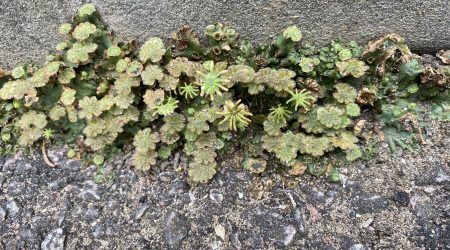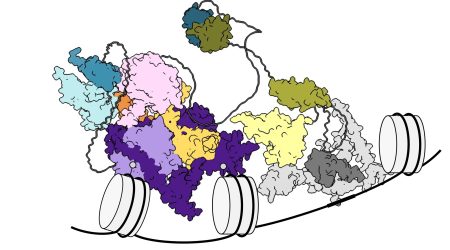A histone modifier that facilitates an epigenetic switch

Epigenetic regulation of gene expression is associated with switching between chromatin states characterised by distinct histone modifications.
But how these states are faithfully inherited through DNA replication is still poorly understood.
In this study researchers characterised a gene from an early flowering Arabidopsis mutant and showed that the mutated gene encodes a protein that modifies chromatin – that is it affects the chemical modifications of the histone proteins that surround the DNA in our cells. This class of modifier had not been well characterised in plants before.
Further, they find that the modifier protein physically associates with a well-known class of chromatin modifiers – called Polycomb proteins.
Polycomb proteins add an epigenetic mark (methylation) at a specific point (lysine residue at position 27) in the amino acid sequence of a histone protein that packages the DNA and this leads to silent chromatin.
The addition of this epigenetic mark can only happen when another nearby site (lysine residue at position 36) in the amino acid sequence is not modified. They are mutually exclusive- that is only one of these specific sites can be modified with the epigenetic mark at any one time.
Interestingly, the newly discovered modifier protein facilitates removal of the epigenetic mark at lysine 36, thus allows Polycomb to add the epigenetic mark at lysine 27. The physical association of the two activities helps generate a switch of active chromatin to silent chromatin.
Understanding basic principles of how genes are regulated by chromatin will help in many other studies of plant growth and development and in future plant biotechnology.
This project was started over 20 years ago by a PhD student (Claire Hutchison) in the group of Professor Dame Caroline Dean and resumed through collaboration with Dr Xiaoqi Feng’s lab at the John Innes Centre and Professor Justin Goodrich at the University of Edinburgh.
The study ‘The Arabidopsis epigenetic regulator ICU11 as an accessory protein of Polycomb Repressive Complex 2’ appears in PNAS (Proceedings of the National Academy of Sciences).



